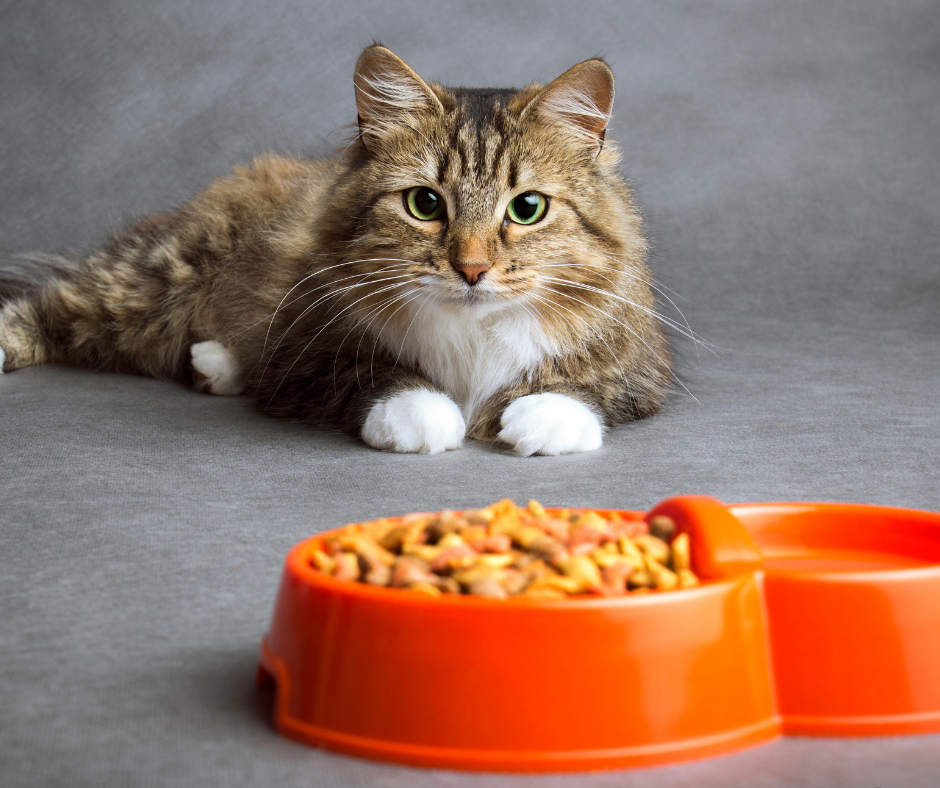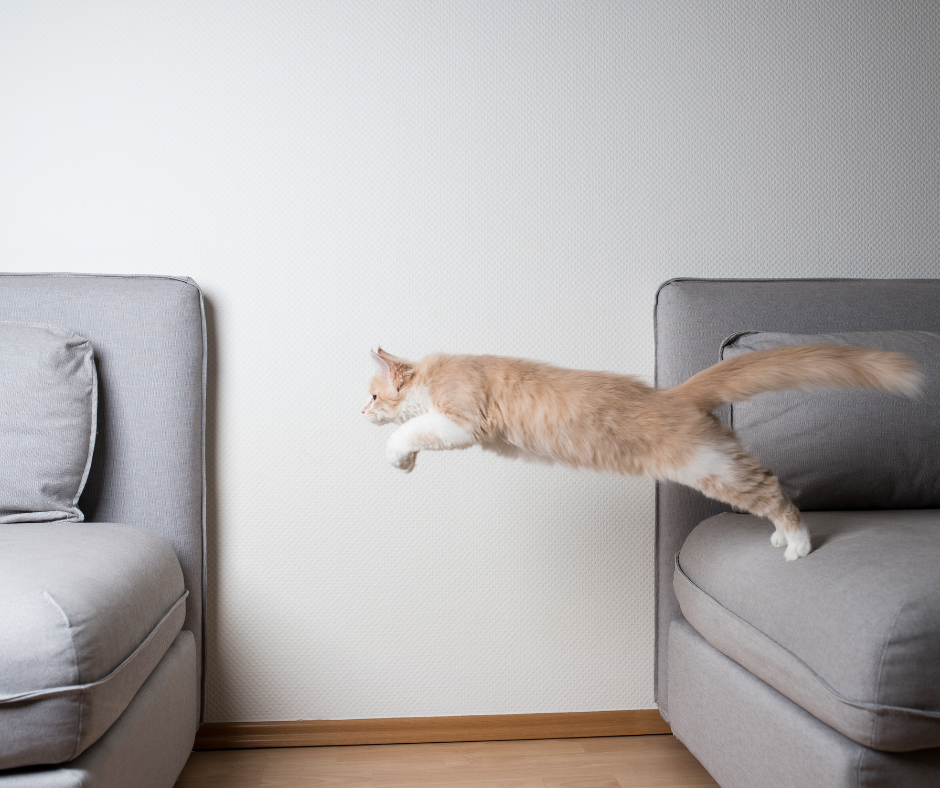Wondering if your cat is overweight under all that fur? Carrying that extra flab can put your pet at higher risk of certain health conditions including diabetes, liver disease and arthritis so it is worth taking the time to check. Read our team’s top tips on how to tell if your cat is overweight and what to do about it.
Cat weight vs body condition score
Although the adult cat weight average is around 4.5kg, the ideal adult cat weight can vary enormously between individuals, depending on breed, height and frame. A more practical way to assess whether your pet is a healthy size is to check their body condition score. This involves looking at your pet’s overall body shape, and distribution of fat, particularly over their ribs and waist. These size-o-meters from the PFMA (Pet Food Manufacturers’ Association) are a good place to start. A vet or vet nurse will also be able to show you how to assess your pet’s body condition, and your local pet shop expert might also have some tips.

Is my cat fat?
Signs that your cat might be carrying too much fat include lack of defined waste, sagging belly, skin rolls, fat pads on the lower back, and difficulty feeling the ribs, spine and hip bones. These are some of the things that you will assess when looking at your pet’s body condition score. Systems which rank your pet’s leanness on a scale of 1 to 5 are fairly common, but some body condition charts use a scoring system that ranges from 1 to 10. The PFMA size-o-meters are a 1 to 5 chart, with a score of 3 being considered ideal for most individuals.
How to get a cat to lose weight
If your cat is overweight, speak to your vet for advice as they may suggest checking for underlying medical causes. A vet can recommend a suitable diet and weight loss plan for your pet, taking into account any medical considerations and suggesting a safe rate of weight loss to shed those extra pounds. Generally, this will be around 1-2% of body-weight per week as crash dieting can be dangerous and lead to health problems such as fatty liver disease. Your vet might suggest a ‘therapeutic diet’. These are formulated to help promote a healthy rate of weight loss for your feline, but should only be fed under veterinary advice as they can contain certain nutrients in higher or lower quantities than those needed in an animal that is a healthy weight.
If a therapeutic diet is not necessary for you cat, your local pet shop will be able to talk you through the low-calorie options they have available. It might be easier to find a lower-fat dry diet than wet food. Any treats or other extra snacks should also be taken into the equation when working out your pet’s food ration. Puzzle-feeders can be useful, as these help to make meals last longer for pets on smaller portion sizes than they’ve grown accustomed to!
Free feeding should also be avoided. This is when food is available ad lib, such as a bowl of kibble which your cat can help their paws to whenever they like. You can read more here about why not to free feed.

How to exercise a cat
You can encourage your pet to be more active by working out what kind of play they enjoy. Cats often prefer games which make the most of their natural pouncing, jumping and stalking abilities. Bear in mind any concurrent health conditions that could make any of these activities tricky for your puss, such as arthritis, and adjust play accordingly.
Cats will usually enjoy shorter sessions of activity than a dog might. This difference could stem from their wild ancestors, with wild dogs generally spending longer hunting their prey, and wild cats chasing in short, sharp bursts. Playing with your cat for two sessions of 15 minutes each day is about right, but you might need to build up to this.
Choosing appealing toys can help, and cats love movement. This means that toys or games which involve fast-moving parts can be a great way to get their attention. Read our full guide on all things cat toys here. We’ve even got tips for training your cat to play fetch!
Love pets and fab freebies? So do we! Sign up below to be the first to know about great competitions and offers and join in the conversation over on our Facebook page.


